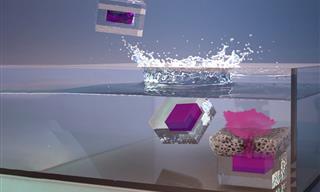1. Auto-Brewery Syndrome Makes a Person Feel Drunk after Eating Bread
The overwhelming majority of people experience drunkenness after consuming alcohol, but individuals who suffer from auto-brewery syndrome get drunk from just eating carbs (and especially gluten). This is because of yeast living in these patients’ gut that converts the carbohydrates we consume into ethanol (alcohol), which can lead to intoxication.
Just imagine waking up with a hangover after one-too-many croissants... Admittedly, the majority of people suffering from this condition don’t get hammered after eating a piece of cake, but those with a more severe form of the disease can suffer from chronic fatigue, headaches, vomiting, and even liver damage, not to mention sudden changes in behavior.
2. Foreign Accent Syndrome Patients Wake up Speaking with a Foreign Accent
This rare speech impediment that usually appears after some form of damage to the brain makes a person suddenly acquire a foreign accent. So, a native American English speaker recovering from a brain injury may all of a sudden wake up speaking with a French or Chinese accent.
And while it may sound bizarre, neuroscientists can explain why this happens: a person who has sustained some damage to one of the language areas of the brain may have difficulties producing certain speech sounds, which we, the listeners, perceive as a foreign accent. And while these people are usually aware that they are pronouncing a sound incorrectly, they simply lack the ability to change the way they speak.
3. Tissues and Body Parts of Patients Suffering from Proteus Syndrome Grow Disproportionately
Proteus Syndrome is a rare genetic disease that makes the different tissues of our body (bones, skin, organs and blood vessels) grow out of proportion. This rare condition is not hereditary, and the abnormality in the genetic code is believed to be a random gene mutation during fetal development.
At birth, patients with Proteus Syndrome don’t exhibit any symptoms of the disease, and the excessive growth typically starts at 6-12 months of age. The condition is highly stigmatized, and throughout history, Proteus Syndrome sufferers have been often labeled freaks and outcasts, with one of the most famous examples of this stigma being a British man, Joseph Carey Merrick (1862-1890), sadly more known by the nickname “the Elephant Man". Merrick himself wrote that people, even doctors, often treated him like an animal.
5. Cotard's Syndrome Makes Patients Believe They’re Already Dead
This rare psychiatric condition, also called “the walking corpse syndrome,” makes patients believe that their body is decomposing. These patients are severely delusional, denying the presence of certain body parts and often refusing to eat because they believe they’re already dead and won’t be able to digest food.
Interestingly, patients suffering from the disease can successfully distinguish between alive and dead people, but they are convinced that they specifically are deceased. The condition is loosely linked to depression, with antidepressants generally helping recovery, but there were also reported cases of Cotard’s Delusion induced by brain damage and injury, which sometimes clear up spontaneously after the patients’ recovery.
5. Urbach-Wiethe Disease Sufferers May be Immune to Fear
Yet another rare genetic condition, the Urbach-Wiethe Disease is typically characterized by the hardening of the skin and other tissues, including the brain (thus the condition is often linked to brain damage). There are 400 registered cases of the condition at the moment, but one of these patients, a female patient called S.M. in medical literature is unique, as she cannot experience fear.
S.M. was dubbed “the woman with no fear”, and her case helped neuroscientists isolate one brain area that is responsible for the sensation of fear, the amygdala. After scanning S.M.’s brain, the scientists saw that her amygdala is completely destroyed, which confirmed this area’s role in experiencing fear.
Several experiments designed to trigger fear in S.M. have been conducted, e.g. holding her at knifepoint and gunpoint, exposing her to spiders and snakes, and she didn't even flinch. What's more, when asked to distinguish between sad or scary music, she failed, so the very concept of fear is foreign to this woman.
6. Marie Antoinette Syndrome Makes One’s Hair Suddenly Turn White

The name of this condition comes from a legend about the French queen Marie Antoinette, whose hair supposedly turned white the night before her execution. And while the majority of scientists don’t believe that it’s possible to lose all of your hair pigment overnight, there are reported cases of relatively sudden graying of the hair due to extreme stress.
Some World War II bombing survivors, for example, have experienced their hair turning white faster than usual, but not overnight. Many historical figures, too, such as Thomas More, have been believed to suffer from this condition as well.
7. Persons Suffering from Water Allergies Get Skin Rashes after Contact with Water
The medical name of this condition is actually twofold: Aquagenic urticaria and Aquagenic pruritus, and both are skin conditions that develop minutes after a person suffering from the so-called water allergy gets in contact with water. Though commonly known as a water allergy, these conditions are not technically an allergic reaction and their causes are poorly understood. There is no cure and water of any temperature can trigger a reaction.
There are 30 known cases of water allergies, and the majority of these patients are women who start exhibiting symptoms during puberty. The main distinction between Aquagenic urticaria and Aquagenic pruritus is that the former forms only in contact with water outside of the body, whereas in the latter, even sweating, tearing up and urinating can trigger a reaction. Also, Aquagenic urticaria patients generally develop skin hives, whereas Aquagenic pruritus only causes redness and intense pain when exposed to water.
8. Fish Odor Syndrome Makes All Bodily Secretions Smell Like Rotten Fish

If you’re self-conscious of your BO, just imagine how patients suffering from fish odor syndrome might feel. Trimethylaminuria, the scientific name of the condition, makes patients emit a smell reminiscent of rotten fish through their sweat, breath, and urine.
This condition is genetic and there is no known cure, but minimizing the intake of foods containing chlorine may temporarily improve symptoms. And though this condition is not dangerous to a person’s health on its own, most patients suffering from trimethylaminuria have mental health issues due to stigma and low self-esteem, and a few suicidal attempts have even been recorded.
 Go to BabaMail
Go to BabaMail
































